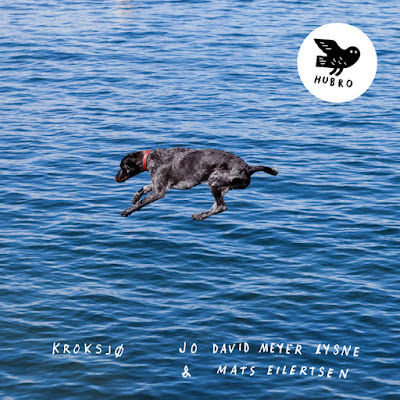Air
Air Lore
★★★½
Any time you see a group or musician performing standards done "their" way, it generally grants two results. One being, the material is really recycled or uninteresting. Another lending to the creativity the musician(s) has, stretches the boundaries of known standard compositions into something unique and representative of that performer's music or life. They treat standards like putty which can molded by them in any shape, form, or fashion. Those two results guarantee that any "standards" album can be a risk. And I've found that taking that risk is mostly worth it. An album like Standards by Derek Bailey is taken to the extremes, he twists and turns each song into a mutation that would be unrecognizable if it wasn't for the track titles. While Air doesn't reach the conceptual heights of that album, they put a spin on these ragtime standards that is still exciting and different than anything else. This must have been really what ragtime music seemed to people when it was first being popularized; pure noise and "street" life lifted into the ears of every person in America. While I'm sure Air did not reach that level of popularity, they definitely provided that feeling for some traditionalists who happened to listen to their album.
Unlike a lot of Jazz group settings in this era, Air doesn't seem to be dominated by a singular voice. Usually this would be the saxophonist or horn player, as was very common especially during the 1970s and 80s. But the horn player here (Henry Threadgill) seems much more adjusted to a group setting and never appears overbearing or selfish. He plays his part and assists others in creating a cohesive, collaborative and enticing album. I've recognized that feature about him on prior albums, but here it seems especially strong as he's joined with only a bassist (Fred Hopkins) and drummer (Steve McCall). This trio has been playing together for a while by this point, and it should be noted that they first performed together using Joplin standards. This music certainly has soul, in an almost down and dirty variation of it too. Just listening to the opener "The Ragtime Dance", you can get the impression that the members of Air are trying to transport you and themselves back to what it must have felt like when people first got a taste of Joplin and ragtime. Not only that, but the playing is joyous and passionate. "King Porter Stomp", an original by Jelly Roll Morton, is played with charm and accuracy; something only a true admirer would be able to do.
It was during the mid seventies that ragtime music was making a sort of revival. People began paying more attention to it and rediscovering standards and recordings that were perhaps believed to be long forgotten. Joshua Rifkin rerecorded Joplin compositions, Joplin's opera Treemonisha was produced, and Joplin was awarded a Pulitzer Prize. So there's no doubt that Joplin and ragtime were popular again, but I don't believe Air was trying to cash in on this popularity. Rather, they were contributing in their own fashion to a scene that was deemed forever forgotten. "Weeping Willow Rag" stretches the boundaries of the original composition more than anything else. The drumming is vivacious and sometimes even has a military march aura surrounding it. The solo gets wilder and more disjointed until about three minutes when Threadgill begins his playing. Just like McCall, Threadgill slowly but surely stretches his playing to fit with a freer interpretation. Threadgill has a real throaty playing style, not one that is full bodied from the belly but more like The theme is never lost and Hopkins's bass solo is the cherry on top to a strong and memorable last track.
The cover of this album is deceiving, the suave seventies open collared shirt look belongs more at the disco or smooth jazz scene than this avant ragtime. Thankfully I knew who Air was before buying this, although I had no familiarity with what was on this album. Otherwise, I would have been deceived by the cover and left to not hear the dedication and excitement this trio brings to a truly American form of music. I'm almost certain that this album is different from the rest, the rest of their discography is mostly original compositions so it's refreshing to hear this tribute of ragtime standards before I dig into their own music. There is no leader here, it's a tightly knit group that has a great chemistry that is comparable to some of the great trios throughout the history of jazz.
Favorite Song: Weeping Willow Rag




Comments
Post a Comment